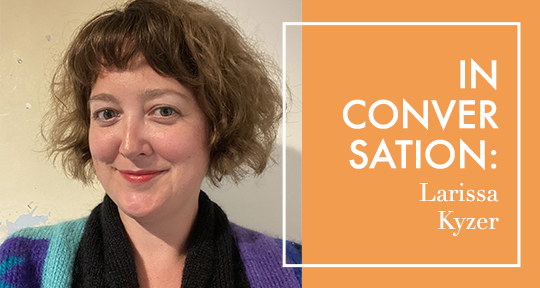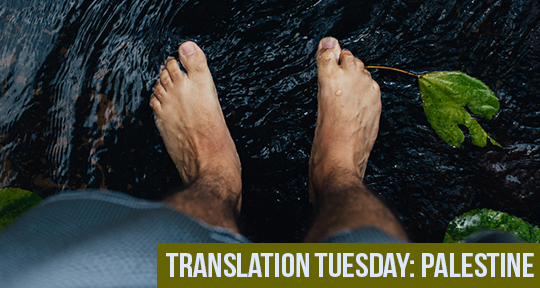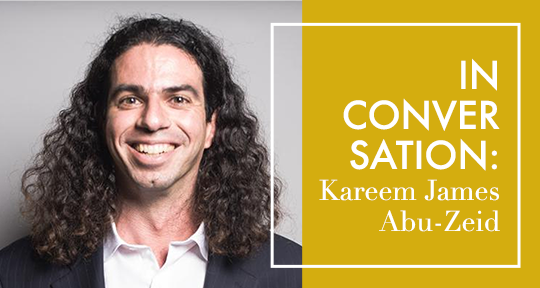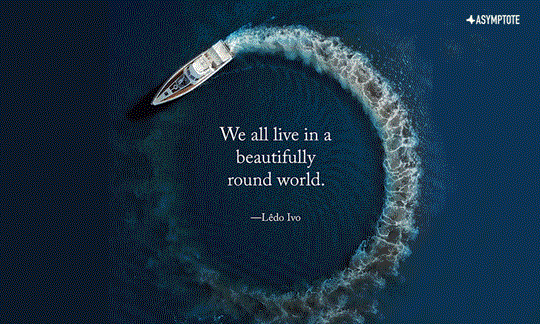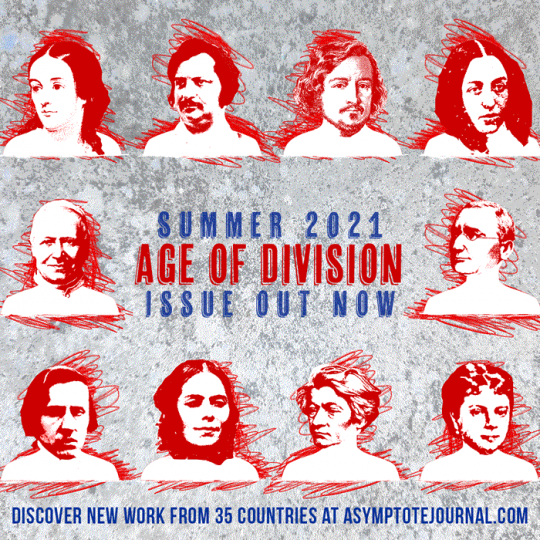Larissa Kyzer translates from the Icelandic works in a wide range of genres, including novels, short stories, and poetry; microplays and film scripts; picture books, chapter books for young readers, and YA fantasies; essays and nonfiction; daily news, and more. Her recent projects include the Impostor Poets’ Manifesto; “A Radio Operator Goes Hunting,” a stand-alone excerpt from art curator-turned-author Steinunn G. Helgadóttir’s first, as-yet-available in English novel; “Bookworm in a Chrysalis,” an essay reflecting on immigration, language-learning, and a lifelong love of books by Natasha S.; and “On the Edge,” a special issue of new and timely writing from Iceland, which she curated for Words Without Borders in 2021. She’s also a writer herself, and has published book reviews (mostly focusing on contemporary Nordic and Icelandic literature), travel writing, personal essays, and articles (most while working as the staff journalist for The Reykjavík Grapevine).
In this interview, I conversed with Larissa about the changing landscape of contemporary literature and literary translation in Iceland, her translation process, and her work to build a more inclusive literary world.
Alton Melvar M Dapanas (AMMD): Before the First World War, translations of Icelandic writings were mostly into German, English, and Scandinavian languages. Eventually, the translations expanded to other languages such as Chinese, Georgian, Gaelic, Esperanto, Slovenian, Macedonian, Uzbek, and even French, Dutch, and Japanese. But this was the landscape of literary translation until the mid-70s through the early 90s, according to Cornell University Press’ Bibliography of Modern Icelandic Literature in Translation. What’s the scene of literary translation in Iceland these days like?
Larissa Kyzer (LK): Thanks to Iceland’s fabulous landscapes and nature (not least its volcanic eruptions, which the country has had four of in the last four months), its perennial popularity as a tourist destination, and its status as a small, European island nation of many listacle-able quirks, there is always at least some demand for Icelandic literature in translation, although the scales still tilt towards crime fiction, as they do for most, if not all, of the Nordic countries. Per the Publishers Weekly Translation Database, which covers first-time English translations “distributed through conventional means” in the United States, there have been 93 Icelandic books translated into English since 2008, when the folks at Open Letter Books started collecting this data. 44 of them (that is, nearly half) are crime novels. Consider that in 2019 (the most recent year data was collected), 1,712 books were published in Iceland, whereas in 2008, at the height of the country’s boom years, we saw the publication of 2,125 books—in a single year. For a country with a population currently hovering around just under 400,000, that’s pretty impressive. But we’re only getting a fraction of this wealth in English.
A sidenote, because I think it’s interesting, and also worth highlighting: the figures for Icelandic literature in English translation are still way more heartening than you see for many so-called minority languages, including ones that have far more speakers. For example, there are about 5.4 million speakers of Finnish worldwide; according to the Translation Database, only 88 Finnish books have been published in English translation since 2008. Thirteen million people speak Greek; only 70 Greek books have been published in English in the same time period. Almost 40 million people speak Thai worldwide; only 3 English-language translations of Thai titles are listed in the database. Hindi has over 600 million speakers; only 14 Hindi-language books have been translated into English in the last 16 years. There’s a lot that can be inferred from these numbers—not least that there is obviously a significant Eurocentricity in English-language publishing—but the baseline point is that as English-language readers, we’re only ever getting access to a tiny sliver of the literature that exists in the world.

